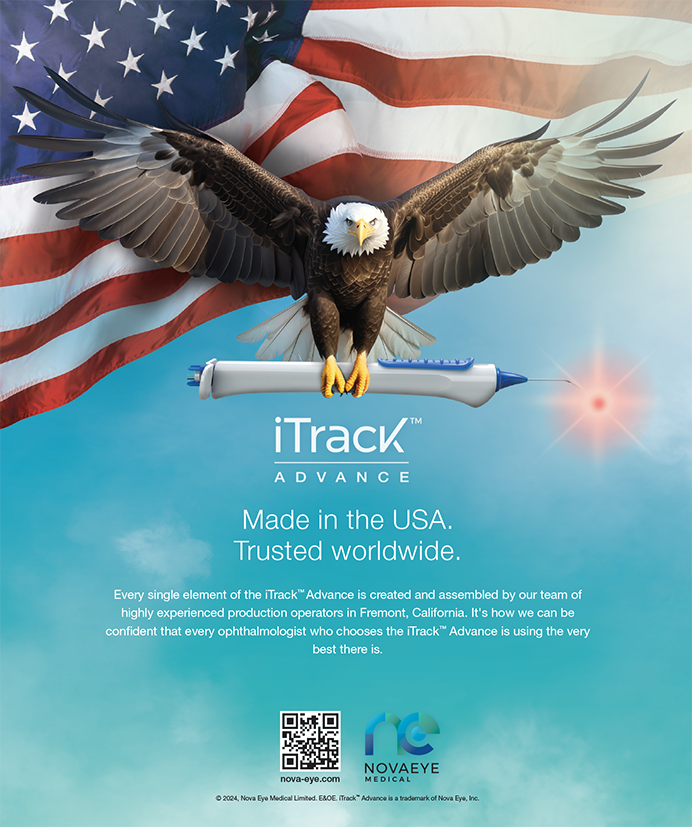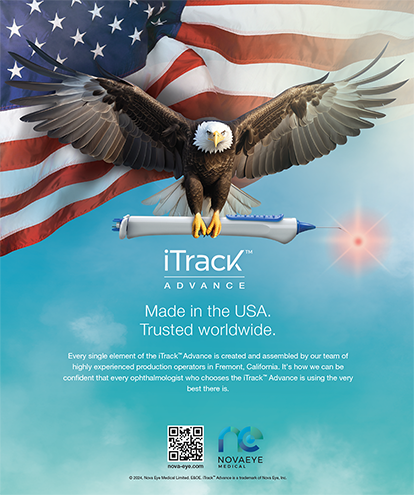In September 2001, my clinic encountered an unexpected epidemic of diffuse lamellar keratitis (DLK), despite the extensive preventive measures we routinely employed. Although we attempted to eliminate each of the many factors that experts have suggested may cause this complication, we failed to halt the outbreak. A quality assurance engineer pointed out that the only variables that were constantly changing in our setup were the microkeratome blades, which come ready to use in sterile packages. The engineer suggested that a lubricating oil used during the manufacturing process might adhere to the metallic surface and not dissolve completely in water. Because these oils are known to dissolve in alcohol, wiping each blade with sterile100% ethanol alcohol before attaching it to the microkeratome seemed a reasonable solution.
CLINICAL TRIAL
We observed 24 patients (48 eyes) who had each undergone LASIK by a single surgeon on the same day. The surgeon used the same setup and instrumentation for each patient, including blades manufactured in the same batch and a Hansatome microkeratome (Bausch & Lomb, San Dimas, CA). We drew 100% sterile ethanol using a glass syringe (disposable plastic syringes are prone to damage by alcohol) and soaked two or three drops into a Merocel surgical spear (Jacksonville, FL). Next, we wiped 12 of the blades with the spear, moving from the blunt edge to the sharp edge, rinsed each in about 10 mL of BSS (Alcon Laboratories, Fort Worth, TX), and used them on the eyes of the alcohol group. The blades for the control group were dipped and rinsed only in BSS.
On the first postoperative day, we found no incidences of DLK in the 24 eyes of the alcohol group. In the control group, however, we diagnosed DLK in seven eyes of four patients (29%). We also noted that DLK was more prominent in the first operated eye, and that the inflammation was more severe in the lower third of the flap. Because of these findings, we now routinely wipe each microkeratome blade with 100% sterile ethanol prior to the LASIK procedure.
CONCLUSION
We believe that wiping microkeratome blades with alcohol has “cured” an epidemic of DLK in our clinic, and has since helped to prevent new cases of the complication. Although we cannot empirically state that wiping the blades with alcohol has made the difference, the circumstantial evidence is overwhelming. One hundred percent sterile ethanol can be easily obtained from a pharmacy for a small fee, and the time needed for cleaning each microkeratome blade is negligible. In order to prevent an outbreak of DLK in your clinic, we strongly suggest that this step be added to the routine measures you already take in maintaining a clean and sterile surgical setting.
Samuel Levinger, MD, is the Medical Director and Chief Surgeon at the Enaim Refractive Surgical Center in Jerusalem, Israel. He does not hold a financial interest in any of the products mentioned herein. Dr. Levinger may be reached at +972 2 5002002; ronit@enaim.co.il


